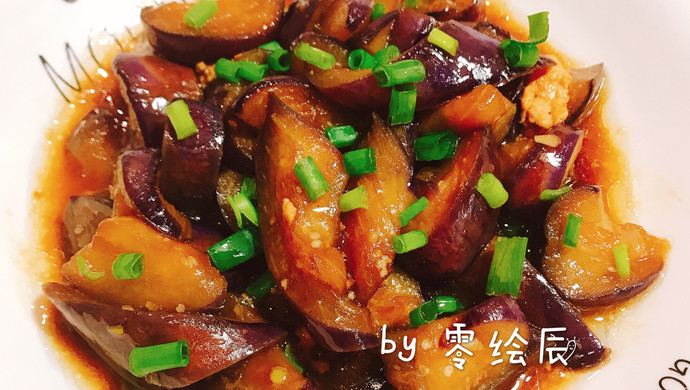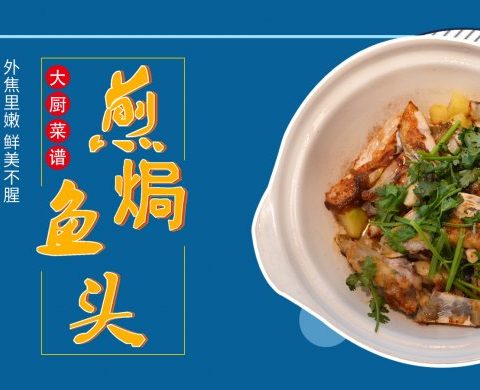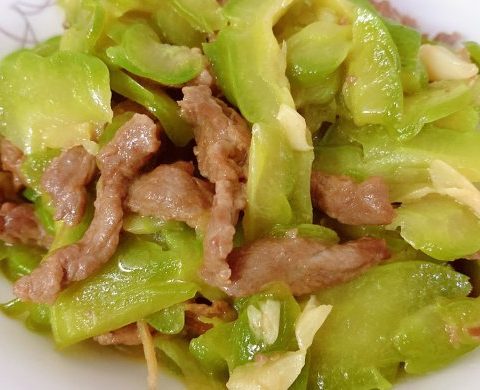Eggplant is extremely popular on our daily table. Eggplant is one of the few purple vegetables, and it is also a very common home-cooked vegetable on the table. It is rich in vitamin E in its purple skin, which is unmatched by other vegetables. Eggplant is suitable for both meat and vegetables. It can be made into soup, fried, stir-fried, braised in soy sauce, or steamed.
Chinese Braised Eggplant Recipe
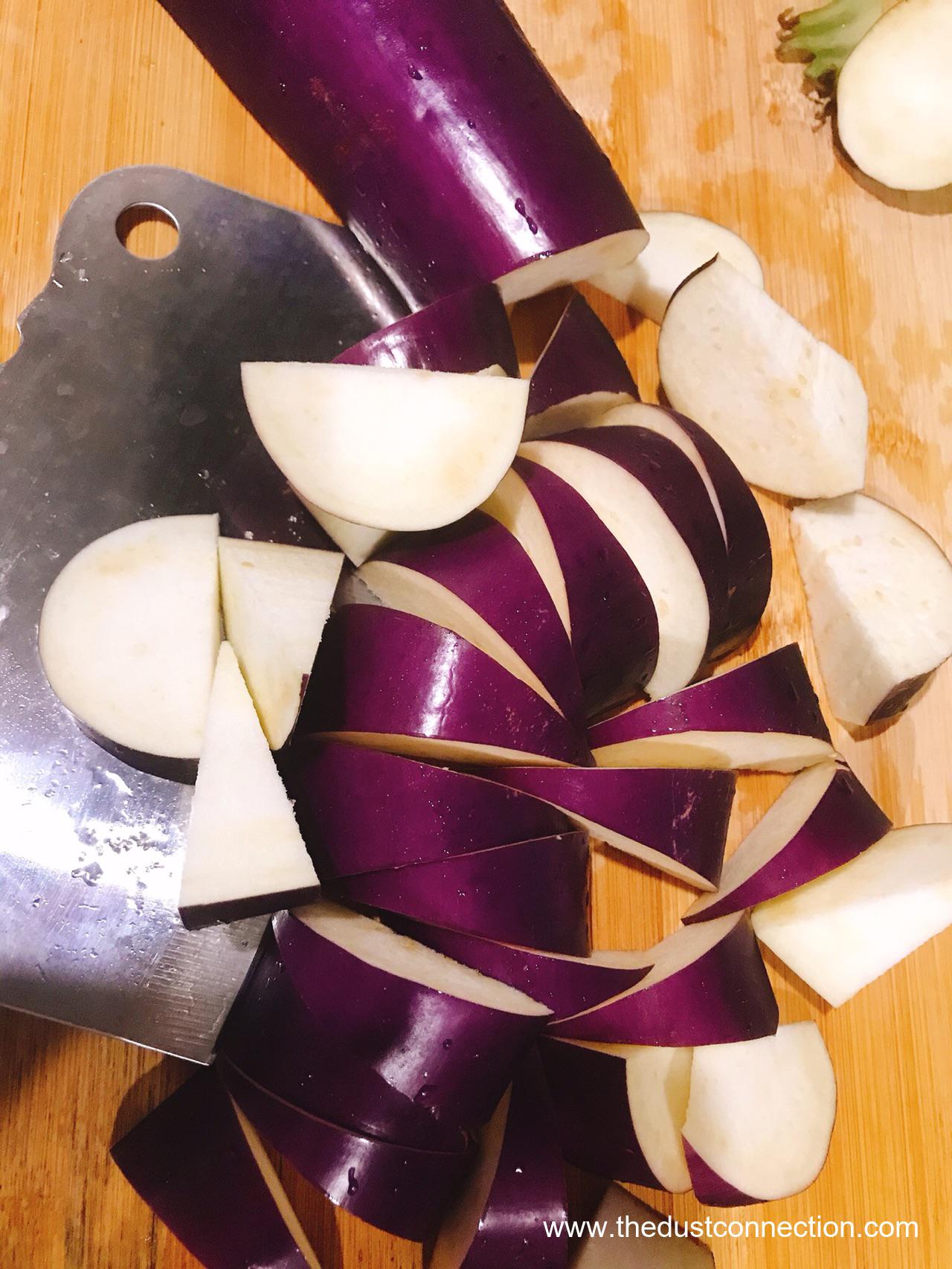
step 1
Wash and cut the eggplants into bite-sized pieces, about 1-inch cubes.
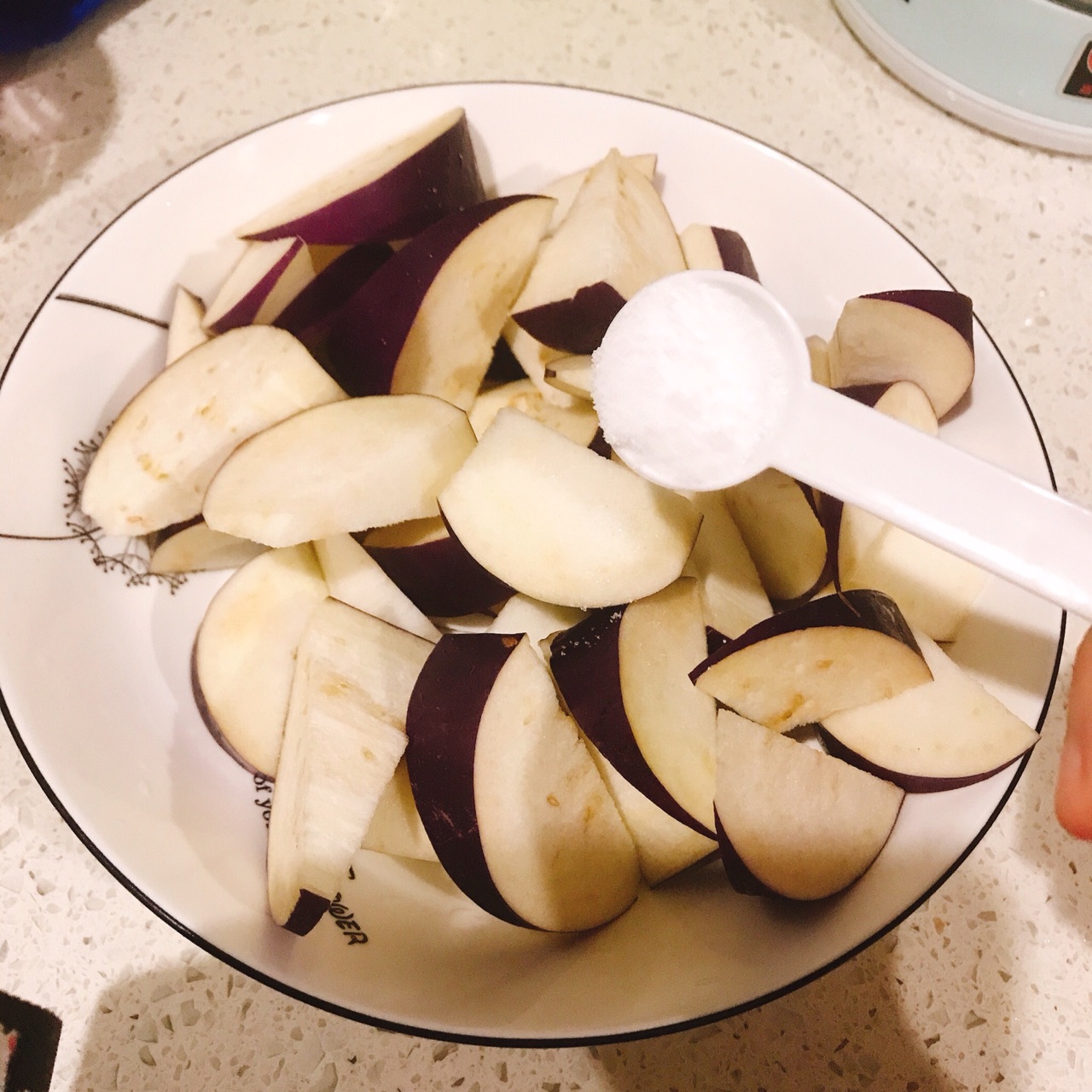
Step 2
Add a pinch of salt and stir it well (this step is very important) and set aside for 15 minutes.

Step 3
Chop the garlic and put it in a bowl, add one spoon of light soy sauce + one spoon of oyster sauce + one spoon of white sugar + a little cornstarch+ water, stir and mix well.

Step 4
Squeeze out the excess water from the marinated eggplant with your hands.

Step 5
Add a spoonful of cornstarch and mix it with your hands.

Step 6
Fry in hot oil

Step 7
Then pour in the sauce you just prepared, stir fry ~ then turn down the heat to medium-low and cover the pan with a lid. Let the eggplant braise for about 10-15 minutes, until it is very soft and tender.

Step 8
Once the eggplant is cooked, remove the lid and turn up the heat to high. Add the onion and stir fry the eggplant for another minute or two, until the sauce has thickened and coats the eggplant pieces.

Step 9
Transfer the braised eggplant to a serving dish and sprinkle with sliced green onions.
It’s done, and the braised eggplant is ready!
Tips for Chinese Braised Eggplant
When the eggplant is squeezed out of water after marinating, squeeze it dry, the eggplant will be rotten after cooking.
What Type of Eggplants to Use?
For this Chinese Braised Eggplant recipe, You’d better choose long, dark purple eggplants. However, if you do not see this at the Chinese grocery stores and local markets, you can use Japanese eggplants that are slightly smaller and stubbier.
Tips to cooking eggplant?
Eggplant is about 80 to 90 percent water, so when you put them in the oven they need space to evaporate all that water and caramelize properly, Give them a toss halfway through the cooking process to make sure they’re cooked evenly, too.
Should I peel Chinese eggplant?
There’s no need to peel Chinese eggplant. You can cut them however you prefer (round slices, cubes, etc).
What’s the difference between Chinese eggplant and regular eggplant?
The Chinese variety contains fewer seeds than globe eggplants, and are therefore less bitter.

Chinese eggplant picture
China is the world’s top producer and consumer of eggplant, so it’s apt that the Chinese eggplant variety is so distinct. It has a lighter, almost pastel exterior, with a white flesh and sweeter taste that fits its appearance.
They can be substituted for each other.
Eggplant Benefits
-
Low in calories
One of the most significant benefits of eggplant is its low calorie count. A 100-gram serving of raw eggplant contains only 25 calories, making it an excellent choice for those who are watching their weight. Eggplant is also high in fiber, which can help you feel fuller for longer and reduce your overall calorie intake.
-
Rich in antioxidants
Eggplant is loaded with antioxidants, which can help protect your cells from damage caused by free radicals. The main antioxidant in eggplant is nasunin, which is found in the skin of the vegetable. Nasunin has been shown to have anti-inflammatory and anti-cancer properties, making eggplant a great addition to any anti-inflammatory or cancer-fighting diet.
-
Good source of vitamins and minerals
Eggplant is a good source of several essential vitamins and minerals, including vitamin C, vitamin K, vitamin B6, folate, and potassium. Vitamin C is an antioxidant that helps boost your immune system. Vitamin K is essential for blood clotting and bone health, while vitamin B6 is necessary for the production of neurotransmitters that regulate mood and sleep. Folate is crucial for fetal development and may help prevent certain birth defects. Potassium is essential for regulating blood pressure and fluid balance in the body.
-
May help lower cholesterol
Eggplant contains compounds called saponins, which may help lower cholesterol levels in the blood. Saponins bind to cholesterol in the digestive tract, preventing it from being absorbed into the bloodstream. This can help reduce the risk of heart disease and stroke.
In conclusion, eggplant is a nutrient-dense vegetable that can provide a wide range of health benefits. It is low in calories, high in fiber and antioxidants, and packed with essential vitamins and minerals. Whether you enjoy it roasted, grilled, or fried, adding eggplant to your diet is an excellent way to boost your overall health and well-being.

